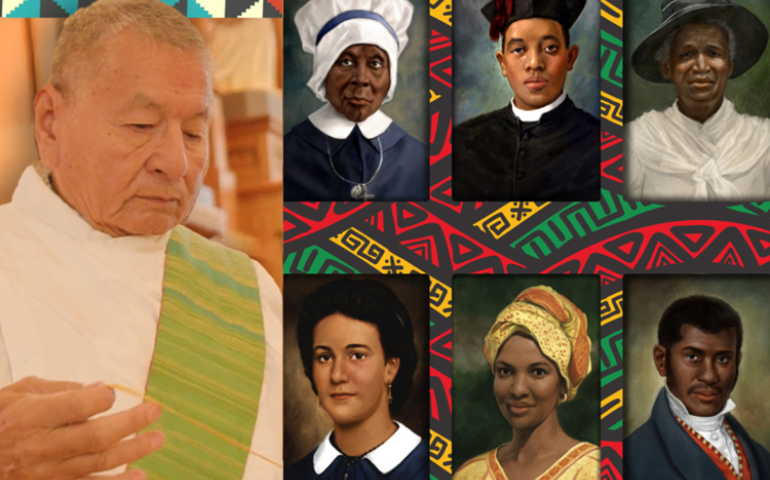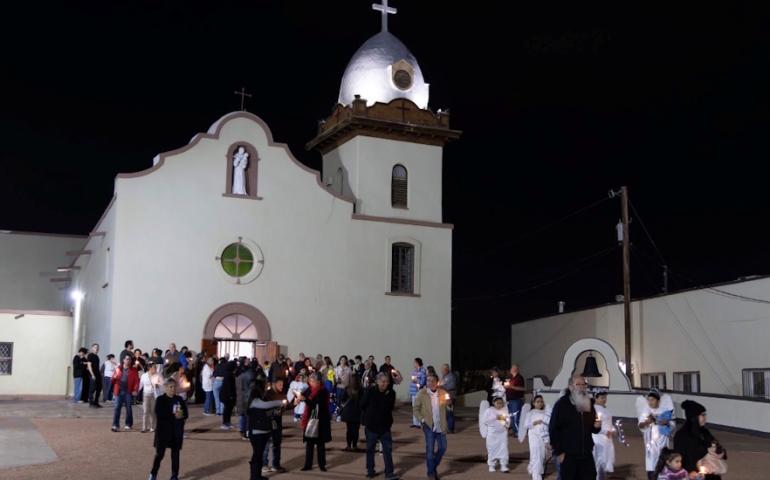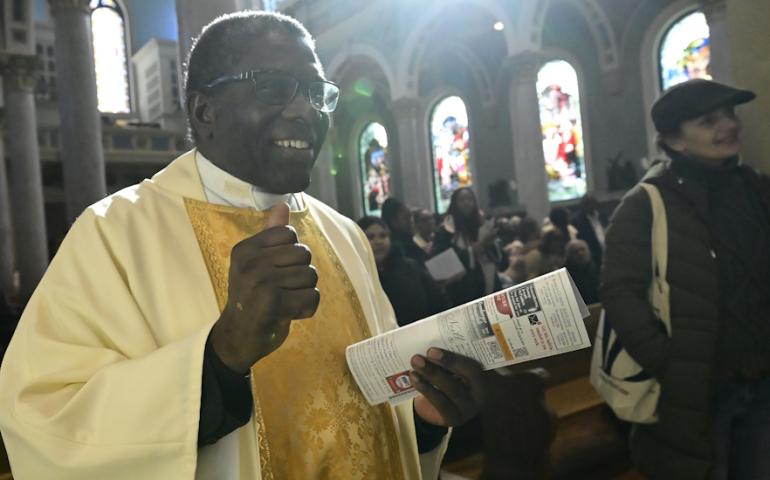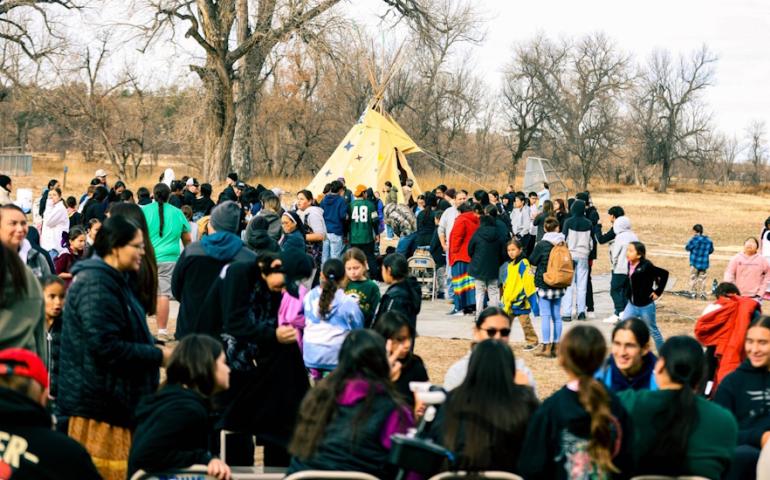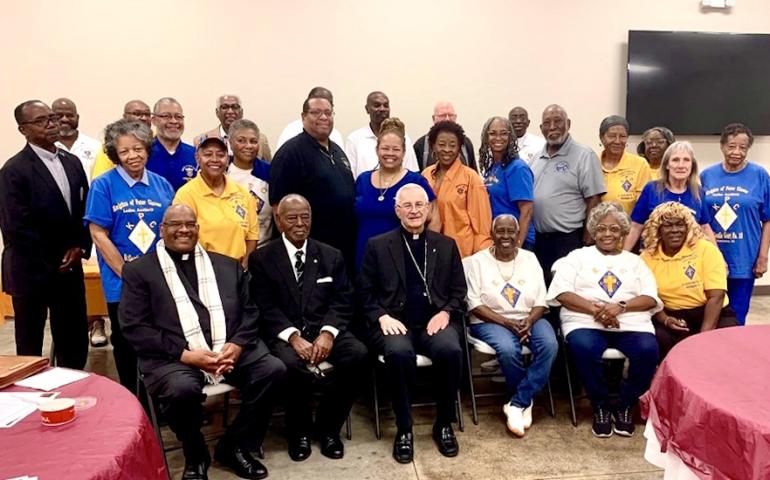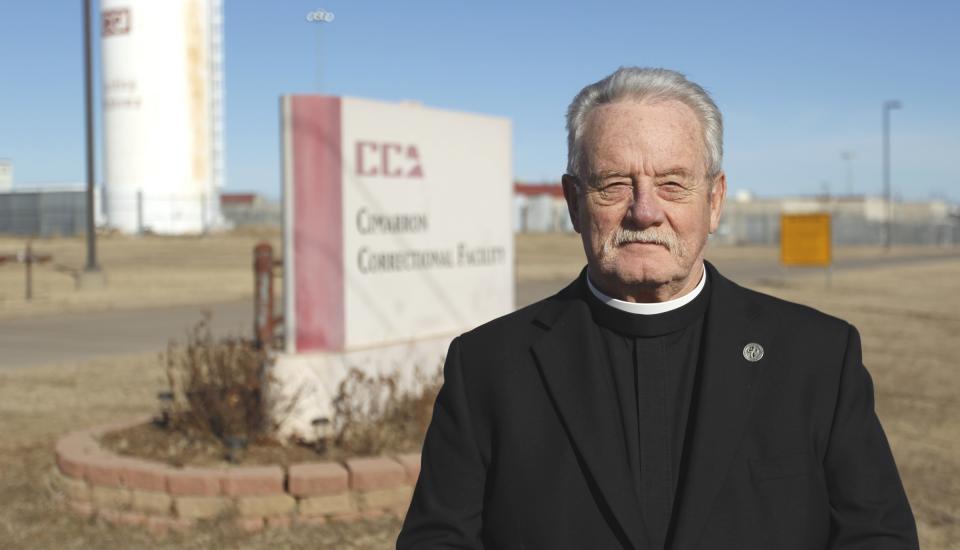
“I was in prison and you visited me…” Matt. 23:26
By Mason Beecroft, Photography by Dave Crenshaw
Pat O’Kelley swore that he would never visit the Cimarron Correctional Facility in Cushing. He was born and raised only two miles from the institution. In fact, he used to ride dirt bikes as a young boy in the fields where it is now located. Just before it was being opened in 1997, he steadfastly refused to attend the open house with his friends and neighbors, promising he would never step foot in the building.
“When they built the prison, I was opposed. I was vocal in local meetings. I hated the prison. They had an open house and I said I would never go in that place. I didn’t want it there. And I didn’t like people in prison. I didn’t like prisoners. They could rot there forever as far as I was concerned. But God has a great sense of humor. He said, ‘Give me eight years and I will put you in there,’ Pat laughed.
Pat’s disdain for the prison and its inhabitants stemmed from his own childhood experience with an uncle that was abusive to his mother, nearly stabbing her to death at one point. His uncle spent most of his life in one correctional facility or another before his death. As such, Pat had little concern for the men who found themselves in the Cimarron Correctional Facility near his home.
Pat grew up attending Baptist, Pentecostal and Jehovah’s Witness congregations in the Cushing area, but was not strong in his own faith. His first wife was Catholic, however, and brought him into the Church, although he admits he was rather reluctant and came in “kicking and screaming.” He started attending Ss. Peter and Paul Parish in Cushing in 1992.
He eventually began attending a Tuesday morning Bible Study led by Kenny Longbrake, who was preparing for his ordination into the diaconate at the time. Deacon Longbrake had started visiting prisoners at the Dick Conner Correctional Facility in Hominy in 2004 at the request of Deacon Bill Dunbar, who was director of prison ministry for the Diocese of Eastern Oklahoma at the time.
“Deacon Dunbar needed people to help out with the ministry and since I was studying for the diaconate at the time, I thought I would volunteer. I ended up getting a life sentence,” Deacon Longbrake joked.
Deacon Longbrake, who was ordained into the diaconate in 2007, was impressed with the prison ministry and began to encourage the men in hisTuesday morning group to volunteer with him to go into the prisons and to help minister to the men.
“Deacon Kenny got me involved in the prison ministry. Finally I fell on the sword for the rest of the guys in theTuesday morning men’s group. I was only going to do one just to get him to shut up. But it completely changed my life,” recalls Pat.
“When I first got involved, I thought I had straightened my life up pretty good, I could probably help those guys. It was my pride talking. When I got out there, the forgiveness was overwhelming. I was definitely called by God to be there,” he continued.
God intervened in his life in a way that he never could have imagined.
“On my weekend, on Saturday, we were asked to write peoples names we needed to forgive or ask forgiveness from,” Pat recalled. “I wrote down the usual suspects, my ex-wife, my kids, etc., but then God brought to mind my uncle I had hated all my life.”
“He tried to kill my mom by stabbing her in the throat 16 times and, when they caught him, he went back to prison. I wrote his name down and traced over it until I ripped the paper. All my anger came out onto that piece of paper. I then stood up and told all the inmates my story and apologized for thinking they were the same as him. Afterward, an inmate came up to me and said he was sorry about my mom and that he had served time with my uncle. I was dumbfounded. I then realized that God had taken me in the prison to heal me and to teach me about forgiveness.”
The prison ministry uses an international and non-denominational program called Kairos to reach out to the residents. Forgiveness of others and forgiveness of self based on God’s love and mercy is an integral part of the program. And it is transformative for both the leaders and the participants.
“On Friday of our weekend, we talk about forgiveness of yourself and then on Saturday we talk about forgiveness of others. It is such a foreign thought to those men to think about forgiving others or ask forgiveness from someone else, much less forgiving themselves. It is almost impossible. In fact, it is impossible without the help of God,” said Pat.
“But they learn how to forgive themselves or come to a point where they can forgive themselves. It is incredible. You can tell people all day long but, until you live it and sit through one, you can’t describe it. You just have to live it,” he added.
Kairos weekends are held twice a year and take place over four days from Thursday evening to Sundayafternoon. In addition to the weekend, Kairos prayer and share groups are held every Tuesday night. The first Sunday of every month is a two-hour reunion. Kairos is an ongoing ministry that works on a six-month schedule.
“We see 42 inmates on a Kairos weekend and it is a different 42 every time we go. So we get the opportunity to minister to 84 individuals each year. Then some inmates return to help on the weekend as servants,” said Deacon Longbrake.
“We are not necessarily there to convert them to Catholicism, but many become interested because there are so many Catholics there and they start going to Mass. Ultimately, Kairos makes a huge impact by sharing God’s grace and the virtue of charity. These men have never seen the love of God in this way. Most of them come from broken families where the Father image is not a good one. So when 30 men come to serve them and share true charity, they start to melt. Men that are white supremacists and gang members of all colors and backgrounds have their lives changed and then become evangelists in the institution.”
A key element to the Kairos weekend is the service offered by the Kairos graduates to the participants. It is unusual, almost unheard of, for an inmate to willingly serve another one out of charity. In fact, most prisoners view such kindness as a weakness.
“It is really incredible to watch,” said Deacon Longbrake. “On Thursday and Friday you will watch the guys boss these servants around, but by Friday evening they realize the servants aren’t getting mad or upset. They just love on them like they were loved on during their weekend. It changes their disposition.”
Another aspect of the program is bringing cookies into the institution. Over the weekend, every man in the facility receives a dozen cookies for lunch. They also provide the participants with full meals including desserts each day, a special treat for men accustomed to prison food.
In addition to the cookies and meals, the men are introduced to key concepts of the Christian faith through presentations and group discussion. Each table has one clergy representative, two volunteers and six participants.
“The weekend is structured around 10 talks,” explained Deacon Longbrake. “They start on Friday morning and they build on each other. After the talk they have a small group discussion about what the talk meant to them. Our motto is ‘listen, listen, love, love.’ We are there keep someone from dominating the conversation at the table. Our job is to get them to talk to each other and build them into a community inside the prison with people they can count on. The less we talk, the better we are doing our job.”
Deacon Longbrake and Pat said the biggest challenge to the Kairos weekend is recruiting volunteers. There are supposed to be 44 men on a team, but they usually end up with only 32. Many men are hesitant to volunteer because of the time commitment required by the program and uncertainty about going to minister inside a correctional facility.
“I go out and talk at churches trying to recruit men. At the end of my talk, I tell them, “If you go to prison with me, I promise you a miracle.” I have had people come back and say that is a bold statement. I tell them if you believe that when God changes a person’s life it is a miracle, then you will see it. And usually it is your life that changes,” said Pat.
“I would like to talk to every church in our diocese and get at least one Catholic man from every parish involved in this ministry. But it is hard to get people to commit. Not everyone is called to go inside a prison, but we do ask for help with expenses. It is about $125 per resident on a weekend and we help need help there. We also have a prayer chain for every weekend and we ask for help with prayer. One time a guy came to me in tears and wondered why people would pray for him. I said because they are Christians and want you to have the same experience of God’s love that they have had.
“He said, ‘If they knew who I was, they wouldn’t pray for me.’ Yes, they would, I told him. We are there to show them God loves them, which is a hard concept for many of them,” Pat continued.
Deacon Longbrake emphasized that the ministry is built on volunteers being advocates for Christ so that these men might find redemption in God’s love and mercy.
“We are there to show them that God loves them. We are not there to condemn anyone, but just to show them that God’s love and mercy is never ending. Everyone there feels God’s peace and mercy.” he said.
Pat is thankful that God called him into this ministry as it has changed his life forever.
“Kenny (Deacon Longbrake) and I could tell you story after story of how lives have changed through this ministry,” he said. “I was a cold-hearted man when I started Kairos but it melted my heart. Once you have been there you realize that these men in prison are still human beings and God loves them.”
Kairos Prison Ministry in Oklahoma seeks volunteers
Karios prison ministry started in 1976 to reach out to incarcerated men with the Gospel of Jesus Christ. Currently, there are three programs that make up the ministry. Kairos Inside works with prisoners that are in correctional facilities. Kairos Outside ministers to female family members of incarcerated Kairos participants. Kairos Torch, stared in Oklahoma in 1997, is directed at ministering to youthful offenders.
There are over 36,000 volunteers serving over 400 institutions in 35 states and nine countries. If you would like more information about participating in Kairos Prison Ministry in Eastern Oklahoma or would like to support the ministry, contact Deacon Kenny Longbrake at dcn.kenneth.longbreak@dioceseoftulsa.org or Pat O’Kelley at 918.223.5307 or by email at pgo63@hotmail.com
Prison Ministry In Eastern Oklahoma
There are 5 priests and 4 deacons in the prison ministry of Eastern Oklahoma who provide the sacraments (Mass, Reconciliation, First Communion, Confirmation) to over 19,000 inmates in 12 maximum to medium security prisons and 1 county jail. These priests and deacons minister in their own parishes as well as the inmates in these institutions. In addition to the sacramental ministry, these men provide spiritual direction and needed materials – blessed Bibles, rosaries, Catechisms, meditation and prayer pamphlets – which they make available to all prisoners, regardless of race or religious denomination.
The Kairos Ministry has been a most effective tool for the conversion of hearts and minds of the incarcerated. These retreats are made available to all prisoners, Catholic or not, and the “bait” is the promise of good homemade meals and unlimited cookies. Since most prisons are operated under strict budgets, dessert is not available in prison. Through this ministry, approximately 60,000 cookies are needed for each Kairos weekend, for a total of 240,000 – 360,000 cookies needed per year. Each weekend costs about $9,000.

